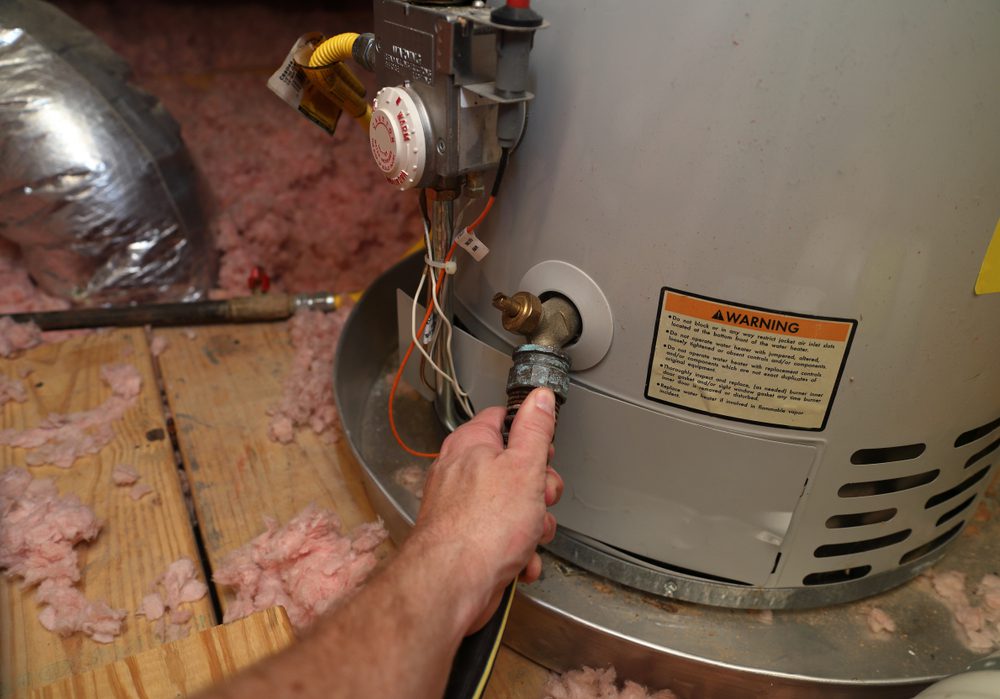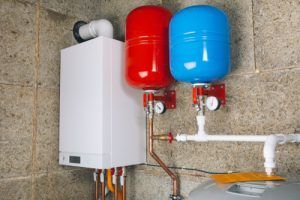On this page down the page you will find some excellent answers in regards to The Importance of Water Heater Maintenance.

A hot water heater is among the most crucial standard appliances that can be located in a house. With hot water heater, you don't need to go through the anxiety of heating water manually every time there is a requirement to take a bath, wash, or the meals. There is constantly a possibility that your water heating system would act up as with most mechanical tools.
It is very important to keep in mind any type of little breakdown as well as tackle it promptly before points get out of hand. A lot of times, your hot water heater starts to malfunction when there is an accumulation of sediments as a result of continuous use. As a preventative measure, periodic flushing of your hot water heater is recommended to avoid debris buildup as well as prevent useful failure.
Usual hot water heater emergencies and also how to manage them
Leaking water heater container.
A leaky tank could be an indicator of corrosion. It could trigger damages to the floor, wall as well as electric devices around it. You can also go to threat of having your house flooded. In this circumstance, you must switch off your hot water heater, allow it to cool down, and also carefully look for the source of the issue. Sometimes, all you need to do is to tighten a few screws or pipeline connections in cases of small leakages. But if this doesn't work and the leak persists, you might require to utilize the services of a specialist for a suitable replacement.
Fluctuating water temperature level.
Your water heating system could begin producing water of different temperature levels normally ice cool or hot hot. There could be a demand to replace either the thermostat or the heating unit of your water heating system.
Too little warm water
Dealing with an inadequate supply of warm water can be discouraging. It might be that the hot water heater can't sustain the warm water need for your home. To take care of this problem, you could try to change your heating unit's temperature level dial and await a few minutes. You can ask for the assistance of a professional plumber if the problem lingers. You might update your water heating system to one with a bigger capacity.
Tarnished or odiferous water
When this takes place, you need to understand if the problem is from the water or the container resource. You are particular that it is your water heater that is malfunctioning if there is no amusing scent when you run cool water. The stinky water can be caused by rust or the buildup of germs or debris in the hot water heater tank. You can try flushing out your tank or replacing the anode if the problem continues when you notice this. The function of the anode is to clean out bacteria from your storage tank. Considering that the anode rod replacement requires a thorough knowledge of your water furnace, you will certainly need the help of a specialist.
Verdict
Some property owners neglect little caution and minor faults in their hot water heater system. This only brings about further damages as well as a possible complete break down of your home appliance. You need to handle your water heater faults as quickly as they come up to avoid even more expenditures and unneeded emergency problems.
With water heaters, you don't require to go with the stress and anxiety of home heating water by hand every time there is a demand to take a bathroom, do the laundry, or the recipes. Your water heater could begin producing water of different temperature levels usually ice cold or scalding warm. It may be that the water heater can not support the warm water need for your apartment. If there is no funny odor when you run cool water, after that you are specific that it is your water heater that is damaged. The stinky water can be caused by corrosion or the accumulation of bacteria or sediments in the water heater container.
Water Heater Burst: Why This Happens And What To Do Next
Water Heater Explosion Warning Signs
Since storage water heaters are made of metal and store large volumes of heated water, they carry an increased risk of leaking or even exploding as they begin to rust at the fittings and seams over time. If the thermostat controlling the water temperature within the tank is faulty, or if mineral buildup inside the water heater prevents the thermostat from sensing the water’s temperature correctly, the water could become overheated. This will expand its volume within the tank, causing it to press at the tank’s fittings and seams. If these fittings and seams are rusted or corroded, the pressure could result in a leak or even an explosion.
Here are some risk factors and warning signs of an increased risk of water heater leak or explosion:
- Your water heater is more than 10 years old.
- Your water heater makes clanking, banging or rumbling noises as it heats up, indicating that sediment has built up and hardened inside the tank.
- There is visible rust on the outside of the water heater, especially located at the pipe fittings or the seams that run down the tank.
- There is rusty water coming from your water heater, indicating that there may be rust building up inside.
- Your water heater is leaking, which could indicate either a crack somewhere in the tank or a malfunctioning temperature-and-pressure (T&P) relief valve.
What To Do When Water Heater Leaks
If you find water dripping or seeping out of your water heater, or pooling around it, it means your water heater is leaking. If you find a leak, it may be best to call a plumbing professional to diagnose the problem and determine how best to handle it. If you choose to tackle it on your own, there are a few things you can do.
TURN OFF THE POWER
Next, shut off the power to the hot water tank at your home’s electrical breaker box. If you don’t shut off the power, the heating elements within the tank could continue to stay hot, which could pose a fire risk.
If you have a gas-powered water heater, you’ll also need to shut off the gas line leading into the tank.
FIND THE LEAK
Now it’s time to determine where the leak is coming from. Likely locations are the T&P valve, the drain valve or one of the pipes or fittings that feed into the top of the tank. If you see any rust or corrosion on the outside of your water heater’s tank, pipes or fittings, these could also be the source of the leak.
REPAIR THE LEAK
Once you determine the source of your water heater leak, you’ll have a better idea of what steps you need to take to fix the problem. It may be a simple fix—such as using a wrench to tighten fittings or replacing the T&P valve—but it may be something more complicated. You may even need to drain the tank, remove the water heater and install a new one.
https://www.abchomeandcommercial.com/blog/water-heater-burst/

Do you appreciate reading up on Warning Signs You Need Water Heater Repairs? Give a remark down the page. We would be glad to listen to your reactions about this blog post. We are looking forward to see you back again before long. Those who appreciated our blog posting please remember to pass it around. Many thanks for taking the time to read it.
Get the best, call!
Comments on “Dealing with the Top Water Heater Crisis Situations”